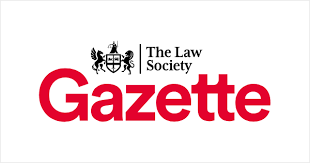When intimate content resurfaces: what to do
Discover how Cohen Davis Solicitors helped a client remove private adult videos from foreign adult websites using strategic legal tools like DMCA takedowns, subpoenas, and privacy law. Learn your rights and how to protect your online privacy.
Removing personal adult content from foreign porn websites
Louis and his wife never imagined they’d need a solicitor. Years earlier, they had taken part in a series of consensual webcam performances which were supposed to be artistic, experimental, and private. Louis had filmed the content himself, and they believed it had faded into the past.
Years later, Louis discovered something that turned his stomach: the videos had been copied and uploaded onto pornographic websites. Not just one, but many. All free to view, easy to download, and impossible to ignore.
Worse still, Louis and his wife now had two young daughters. The thought of these videos resurfacing in their children’s future terrified him. He’d already spent over a year writing emails, sending takedown requests, and trying everything he could think of. Most of the content was gone but the most stubborn sites, often hosted abroad, refused to engage.
Exploring international legal options for adult content removal
Louis arrived at our firm tired, frustrated, but determined. He told us everything what had happened, what he’d already done, and what was still out there. He didn’t want compensation or a fight. He just wanted peace, and a clean internet footprint for his wife and children.
We listened carefully and then laid out the legal options. Our approach in such cases always starts simple, and scales up only when necessary to keeping costs down and outcomes realistic. When harmful content is hosted abroad, particularly on US-based websites, legal remedies differ.
In Louis’ case, we identified three key pathways. The first was copyright enforcement. Louis had produced the videos himself, therefore he held original copyright. This allowed us to issue DMCA takedown notices a powerful tool under US law that compels websites to remove infringing content. It’s fast, relatively inexpensive, and surprisingly effective.
The second option involved filing a subpoena in a US court to uncover the identities of anonymous website operators. Many sites hide behind privacy-protected domain registrations. A subpoena forces registrars like GoDaddy to reveal ownership information unless the site chooses to remove the offending material instead. This route is more involved, but when effective, it puts tremendous pressure on evasive site operators.
The third route involved data privacy law. Under both UK and European law, sharing intimate content without consent can breach rights to privacy and personal data. For sites using European-based services or infrastructure, we could pursue regulatory complaints, including to bodies like the French CNIL, which have the power to order content removal and issue fines.
Strategic adult content removal: starting with takedowns
With Louis’ blessing, we began with the most efficient route: issuing copyright infringement notices under the DMCA. These notices were carefully drafted, citing Louis’ rights and listing specific URLs. Many of the websites complied quickly, especially those reliant on hosting services that enforce copyright rules strictly.
Others remained silent. This is where things often get more complex in cases involving adult content websites or platforms that operate overseas. Many of them are run anonymously, lack visible contact information, or are hosted in jurisdictions where copyright enforcement is weak.
To address this, we moved to the next step, preparing a subpoena for the registrar of one particularly stubborn website. Our goal was not to litigate but to signal serious legal intent. In parallel, we contacted services like Cloudflare, alerting them to violations of their own terms of service. These efforts often prompt service providers to suspend access or urge their clients to remove unlawful content.
Tracking evasive websites and persistent legal follow-up
Behind the scenes, this work can be painstaking. We used WHOIS records, digital tracing, and targeted correspondence to locate domain owners. Some websites, once removed, popped up again under slightly different addresses. We were ready each time. Often, the operators of these types of websites go out of their way to be evasive. They hide behind privacy-protected domain registrations, use offshore hosting providers with limited accountability, and frequently ignore legal correspondence. Some even rotate their content across mirror sites to keep it online. These tactics are designed to wear victims down. What made the difference was persistence. These websites often rely on victims giving up. But we don’t.
Complete takedown of private content
Gradually, piece by piece, we succeeded in removing the remaining videos. Some sites folded under legal pressure. Others took the easier route of compliance to avoid further exposure. What mattered most was that Louis and his wife no longer felt exposed. They had their peace of mind back, and their children’s digital future was safer.
Advice for anyone trying to remove intimate content from the internet
What happened to Louis is sadly common. Intimate content whether shared consensually or not can quickly spiral out of control once it’s online. The good news is that you have rights, and there are legal tools to help you assert them, even across international borders. Start simple. Takedown notices under copyright or privacy law can often be effective. But don’t hesitate to escalate if needed. Legal strategies like subpoenas, registrar complaints, or appeals to data protection authorities can bring real results, especially when guided by experts. At Cohen Davis Solicitors, we’ve helped hundreds of clients remove private content from the internet. We understand the law, the technology, and the toll this takes emotionally. We work sensitively, strategically, and always with your end goal in mind.
Lawyers’ thoughts about the case
From a legal perspective, cases like Louis’s are becoming increasingly common. The internet never forgets, and once private content spreads to foreign-hosted adult websites, it often becomes a game of legal endurance. What’s crucial for others to understand is that you don’t need to start with complex international litigation. Many removals can be achieved through smart, strategic legal pressure. DMCA notices, when properly drafted, are still highly effective. Likewise, involving service providers, whether it’s hosting companies, CDNs like Cloudflare, or registrars, can lead to faster resolutions. What often surprises clients is how much these websites rely on victims giving up. Operators of such sites rarely respond to emotional pleas or polite takedown requests—but when faced with enforceable legal risks, they frequently act to protect their own interests. Another key takeaway is that copyright ownership, when available, is one of the strongest levers. If you created the content, you likely have the legal right to control where it appears. But even when you don’t, privacy and data protection laws still offer meaningful remedies. Finally, patience is part of the process. These cases are rarely resolved in a single day or with one email. But with the right team and persistence, even the most stubborn content can be removed.


 "I believe that everyone, no matter their walk of life, should have autonomy over their sexual, physical and emotional self and what is online about them. I also believe that everyone deserves a second chance in life and to have an opportunity for a bigger future".
"I believe that everyone, no matter their walk of life, should have autonomy over their sexual, physical and emotional self and what is online about them. I also believe that everyone deserves a second chance in life and to have an opportunity for a bigger future".























